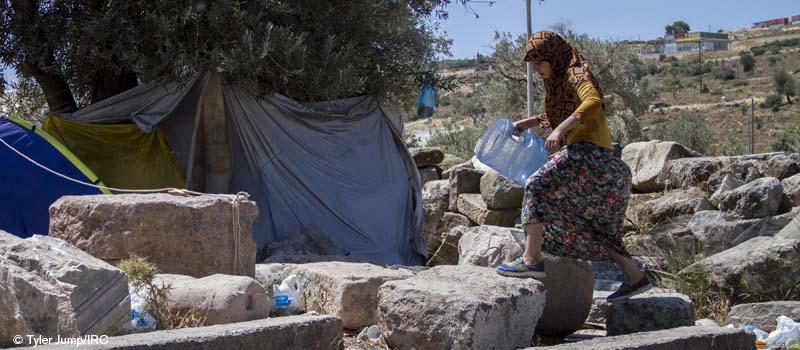If distance from bombs is all refugees have, they will eventually look for more opportunity, even if it means making a perilous journey. The question should not be which countries can afford to provide these refugees with their basic needs but, rather, how the world can provide opportunity to people forced to flee their homes and lives through no fault of their own.
If distance from bombs is all refugees have, they will eventually look for more opportunity, even if it means making a perilous journey, knowing the risk to their safety and well-being. Having the resilience to survive an initial flight from conflict or natural disaster, most try to rebuild their lives.
Despite the admirable generosity of the countries surrounding Syria that welcomed hundreds of thousands, Syrians refugees have struggled to survive for months or years, hoping the conflict would end and they could return to their homes and jobs. In the meantime, their savings have dwindled and their situation has become increasingly precarious, particularly for women and girls.
It is difficult for refugees to find work; in many countries they are legally blocked from employment and in others they are discouraged from entering the workforce. Families are forced to find ways to sustain themselves that can include women stepping out of traditional roles, giving them new opportunities but exposing them to increased risks.
The result is a push factor, a situation that encourages refugees to head elsewhere in search of better lives. A significant number of Syrians are heading for and through Europe, hoping for better access to employment and health care and a safer environment for their daughters who, like all adolescent girls, are at increased risk of sexual and gender-based violence in displacement. In Europe, they hope to establish themselves in new homelands and end their lives as refugees, which is a state of semi-permanent transition.
This large movement is dangerous for the refugees, especially the women and girls, and the size and speed of the journey is making it difficult for governments and organizations to assist them. One of the ways that the international community could help, especially in light of the harsh conditions of winter approaching, is to better fund humanitarian assistance in Jordan, Turkey, Lebanon and Iraq and, in particular, target livelihood programs that help refugees become self-sufficient so that they can rebuild their lives.
Aid agencies have been designing programs that help refugees adapt their skills to new economic situations and keep wage-earning women and their families safe. But such programs are expensive and without massive funding from multiple sources – governments, foundations and individuals – these programs do not reach enough people. The result is a dangerous gamble by desperate people.
As Mounib Zakiya, a Syrian refugee in Jordan, told the BBC, the countries that have not provided aid “have opened a gate to death, and are making us walk through it. It's better to die fast on the journey than die slowly, watching your kids starve.”
They deserve better and we have an obligation to help. The countries surrounding Syria opened their borders to massive numbers of refugees, even as the increased population taxed their resources. The question should not be which countries can afford to provide these refugees with their basic needs but, rather, how the world can provide opportunity to people forced to flee their homes and lives through no fault of their own.


